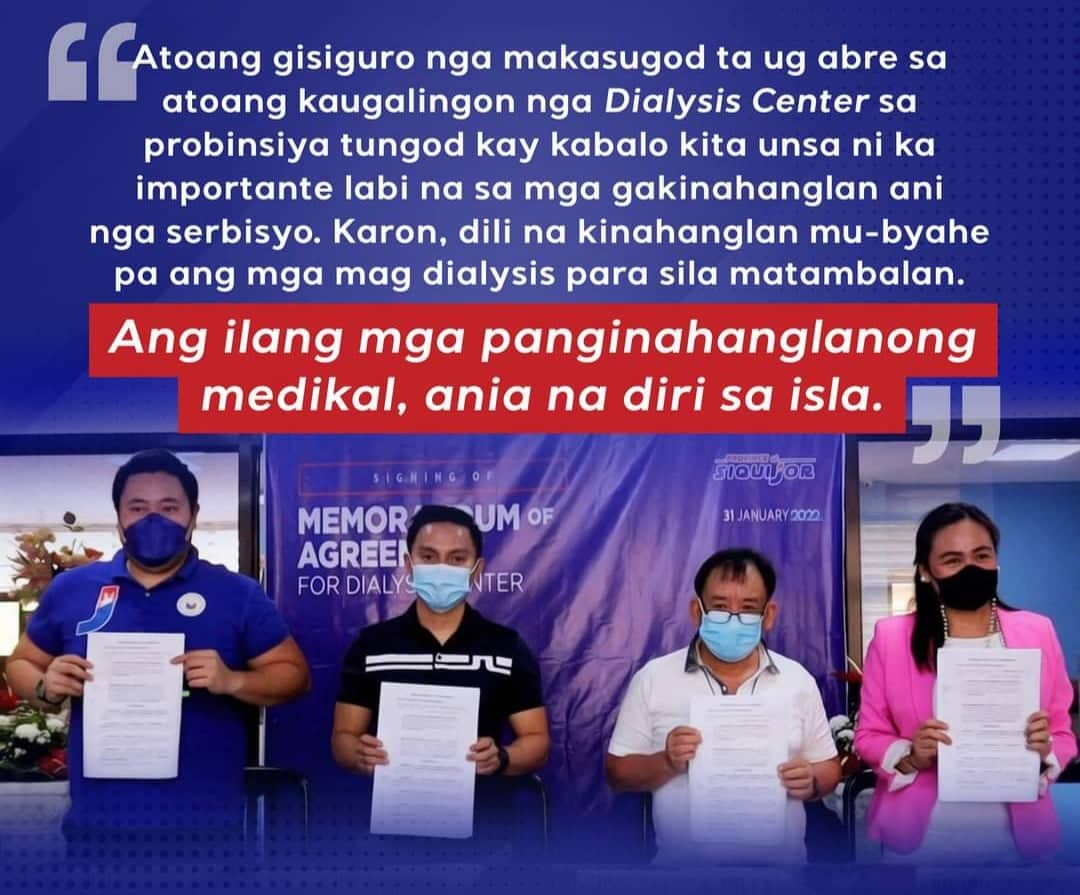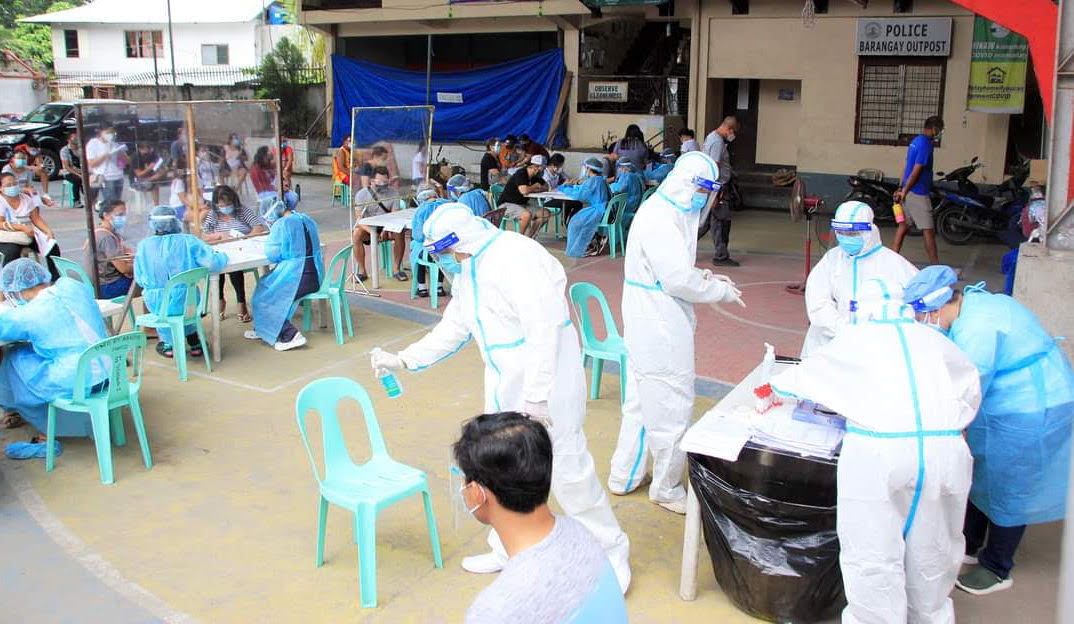TAGBILARAN CITY, Bohol, Feb. 7 (PIA) -- Patients suffering from kidney diseases who need to avail in either of the province-owned hospitals and treatment centers still pay a fee of P1,000 for the injection and medical kits to be used in the process.
In view of this, the Sangguniang Panlalawigan (SP) here is set to formalize the ordinance authored by Board Members Aldner Damalerio and Elpidio Bonita
Citing Section 129 of the Local Government Code which empowers local government units to seek revenue sources and levy taxes, fees, and charges as well as the power to impose and collect reasonable fees and charges for services rendered, Bohol sees the establishment of its hemodialysis centers in hospitals and medical facilities owned and operated by the provincial government as a kind of investment.
As such, patients availing of dialysis treatment services in province-owned hospitals would pay P2,600, which is equivalent to the Philhealth case rate for dialysis.
This Philhealth case package includes payments for four pieces of arterial or vein Fistula Needle, four pieces of single non-sterile gloves, bloodlines, cotton balls, four pcs of 4x4 sterile gauze, a two-inch hypoallergenic plaster, bicarbonate concentrate, AFM 12 Acid Concentrate, four bottles of sodium chloride normal saline solution, two pieces of Povidone iodine antiseptic 5x 5cm wipes, two pieces of alcohol pads 70% or swabs, three disposable syringes at 10 CC with needles, three pieces disposable syringes at 5 cc with needle, one vial of Heparine Sodium at 1000 units per 5ml and Renaline, for reused dialyzer.
While this amount would not be paid by the patient but collected from Philhealth as reimbursement, the patient still needs to pay for the Erythropoeitin Injection 4000 UI which costs P800, two pairs of sterile gloves at P50 each, one piece of tourniquet at P50, one surgical face mask at P10, a disposable surgical head cap at P20, and face shield at P30, for a total of P1,000.
For non-PhilHealth patients at the province-owned hospitals and dialysis treatment centers, a new dialyzer costs P4,800, which is P2,200 for PhilHealth patients.
For re-used dialyzers for non-PhilHealth patients, the cost is P3,600, while those with PhilHealth, the cost is only at P1,000.
Aside from the P1,000 payment, the patient would also be obliged to pay for the P350,000 professional fees of the medical specialist-Nephrologist, if he is not a PhilHealth patient.
As the PhilHealth covers only 104 dialysis treatment sessions, anything beyond the maximum number of procedures, payment would be collected at the patient’s personal expense.
The ordinance also provides for other applicable additional charges that may be borne by the patients like a new dialyzer: low-flux (P1,500) hi-flux (P2, 400), oxygen (P2,00 L/min), Adult Nasal Cannula (P70), drugs and medicines, IV catheter (P150), Macro set/Micro set (P110), ECG (P350), bloodlines (P380) and laboratory fees that may be charged separately when the patient avails of drugs, dialyzer, supplies, and services.
The said ordinance also provides for a schedule or mode of payment a patient may avail.
There is an actual rate of treatment where patient pays the actual rate of every dialysis treatment.
If the patient is a PhilHealth member, the patient pays only the remaining balance or excess after deducting the allowable reimbursement on the procedure, or there is a pass-on rate per treatment where patients pay a uniform schedule of payment every treatment for a package of 104 treatments over a period of one year.
If the patient is a PhilHealth member, the total amount of package is reduced by the PhilHealth allowable reimbursements on the procedures of the same year.
The remaining balance of the package shall be divided by 104 treatments to determine the rate per treatment.
The ordinance also allows discounts and cost-sharing such as for senior citizens, Persons with Disabilities, and PGBh officers and regular employees of the provincial government, where they enjoy a maximum of 20% discount on the total amount of the treatment service fee and the laboratory test fee.
In cases where a department or local government unit guarantees to pay a share of the cost for the patients’ obligations subject to the guidelines on the classification of patients and availment of medical social services, a cost sharing may be availed. (RAHC/PIA7 Bohol)





